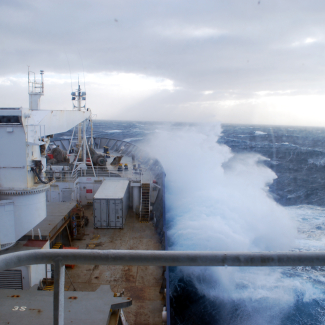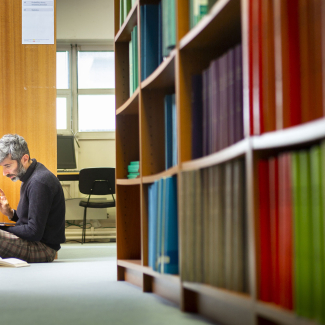
Assessment
The credibility and legitimacy of public research is grounded above all in evaluation. Evaluation of research carried out by the CNRS, its laboratories and its researchers, using relevant criteria, offers assurance that actions are being monitored correctly and a guarantee that the results of the work can be trusted.
Self-evaluation of the CNRS
In 2023 an international committee evaluated the CNRS for the High Council for Evaluation of Research and Higher Education (Hcéres).
"The committee considers the CNRS to be a major and world-class research institution. Its history and impact are reflected in its reputation, its size and scope, and its presence throughout France, in European science initiatives, and internationally" and notably states that "the assessment committee is pleased to acknowledge the worldwide first-class recognition of the scientific production of the CNRS". The committee made 12 major recommendations on the main challenges faced by the CNRS which provided an opportunity to enrich our thinking about our working project.
The report is based on many exchanges between the committee and representatives of the CNRS and its partners who highlighted the organisation's strengths, particularly:
- the quality of our research at the highest level worldwide,
- the pride CNRS staff members have in belonging to the organisation, the CNRS's many partnerships and its leadership position in France and Europe.
- the organisation's efforts to cultivate relations with the socio-economic sphere are particularly recognised, particularly relations with innovation ecosystems.
Consult the November 2023 report from the Hceres website
Evaluating laboratories
The role of the High Council for Evaluation of Research and Higher Education (Hcéres) is to evaluate all higher education and research institutions. Every five years, joint research units are evaluated by this independent national governing body.
Evaluating researchers
Researchers are evaluated by the National Committee for Scientific Research (CoNRS), a governing body made up of members of the scientific community. At regular intervals, researchers will present reports on the progress of their research work, scientific output, and on their work in teaching, technology transfer, knowledge sharing or research management, etc.
Focus on peer review
The principle of peer review is founded on researchers - on a science journal’s editorial panel for example - using qualitative criteria to evaluate each others’ work. These peer review panels decide whether or not to publish the articles that are submitted to them.
The evaluation of CNRS researchers by the sections and interdisciplinary commissions of the National Committee is founded on four principles:
- Quality: The evaluation only looks at the result and not at how prestigious the publication medium is;
- Scope: The personal contribution made to output submitted for evaluation and the impact is considered more important than an exhaustive list;
- Method: All types of output are taken into account in the evaluation, especially the supporting data, if applicable, and the source code needed for the results to be produced;
- Accessibility: All the publications cited should be accessible in an open archive such as HAL if the type of publication permits this.
The changing picture of research evaluation
The process that evaluation is grounded in must be beyond reproach because it is a crucial factor in guaranteeing the rigour, legitimacy and credibility of the research. This is why the CNRS, a forerunner in the area of scientific evaluation, is contributing to the discussion on reforming the practice of scientific evaluation alongside its European partners.
Photo Credit: © Christophe HARGOUES / ICGM / CNRS Images

